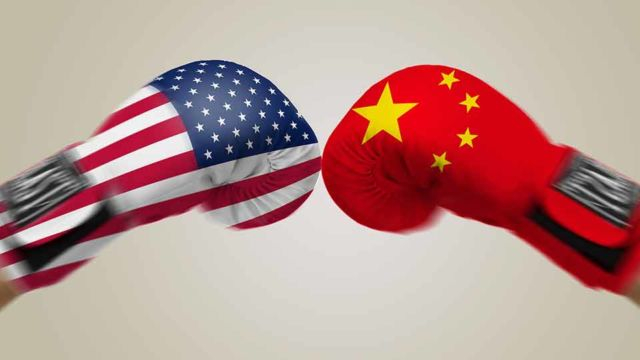
Business
14:01, 28-Aug-2018
US, Chinese businesses tell Trump officials tariffs will damage American industries
Updated
13:27, 31-Aug-2018
CGTN's Daniel Ryntjes
01:53

During six days of hearings, impacted business owners and trade groups have been seeking to influence the Trump administration, mostly requesting to be exempted from a massive list of tariffs on 200 billion US dollars in Chinese exports.
Bick Singh, the president and chief executive officer of NewAge Casting imports steel pipes from China, used in building drainage systems. He calls the threat of new tariffs "a rash decision" and complains that "We are just caught up in an economic warfare, and we're just taking turns trying to shoot each other. We're not going to make anyone's life easier. In fact, we're going to hurt our taxpayers of this country by increasing our consumer costs."
CIMC, a Chinese freight and transportation giant, is planning to invest in several US manufacturing facilities to help meet future demand in China, Mexico and Canada. But, if tariffs are imposed on the company's imported truck bed chassis, that investment capital won't be available.
Frank Sonzala, the president and chief executive officer of CIMC USA, says "That tariff doesn't go into anybody's pocket, but the government's. The government is not going to give it back to us to build a plant. If we don't put that into a tariff, we'll use that to build factories and for educating the people and get the product going, hire more people and have more jobs. It's as simple as that."
The possibility of a widening trade conflict also means that companies have to factor in the dual burden presented by US tariffs and Chinese retaliatory tariffs.
The US agriculture sector is already being hit with targeted tariffs. Whether for or against these tariffs, many US companies say they agree with the goal of opening up opportunities for them to compete in China on a level playing field and to address issues like alleged intellectual property violations and market access to China's burgeoning middle classes - the largest in the world
Many companies also testified that retaliatory tariffs from China, including those targeting agricultural exports, will add a double burden on US global competitiveness.
Many US companies say they agree with the goal of opening up opportunities for them to compete in China on a level playing field. But, the American industries that are likely to be hardest hit have a simple message for the administration: the proposal to tariff 200 billion US dollars in Chinese goods will only hurt US businesses because Chinese suppliers will refuse to absorb the extra costs.

SITEMAP
Copyright © 2018 CGTN. Beijing ICP prepared NO.16065310-3
Copyright © 2018 CGTN. Beijing ICP prepared NO.16065310-3